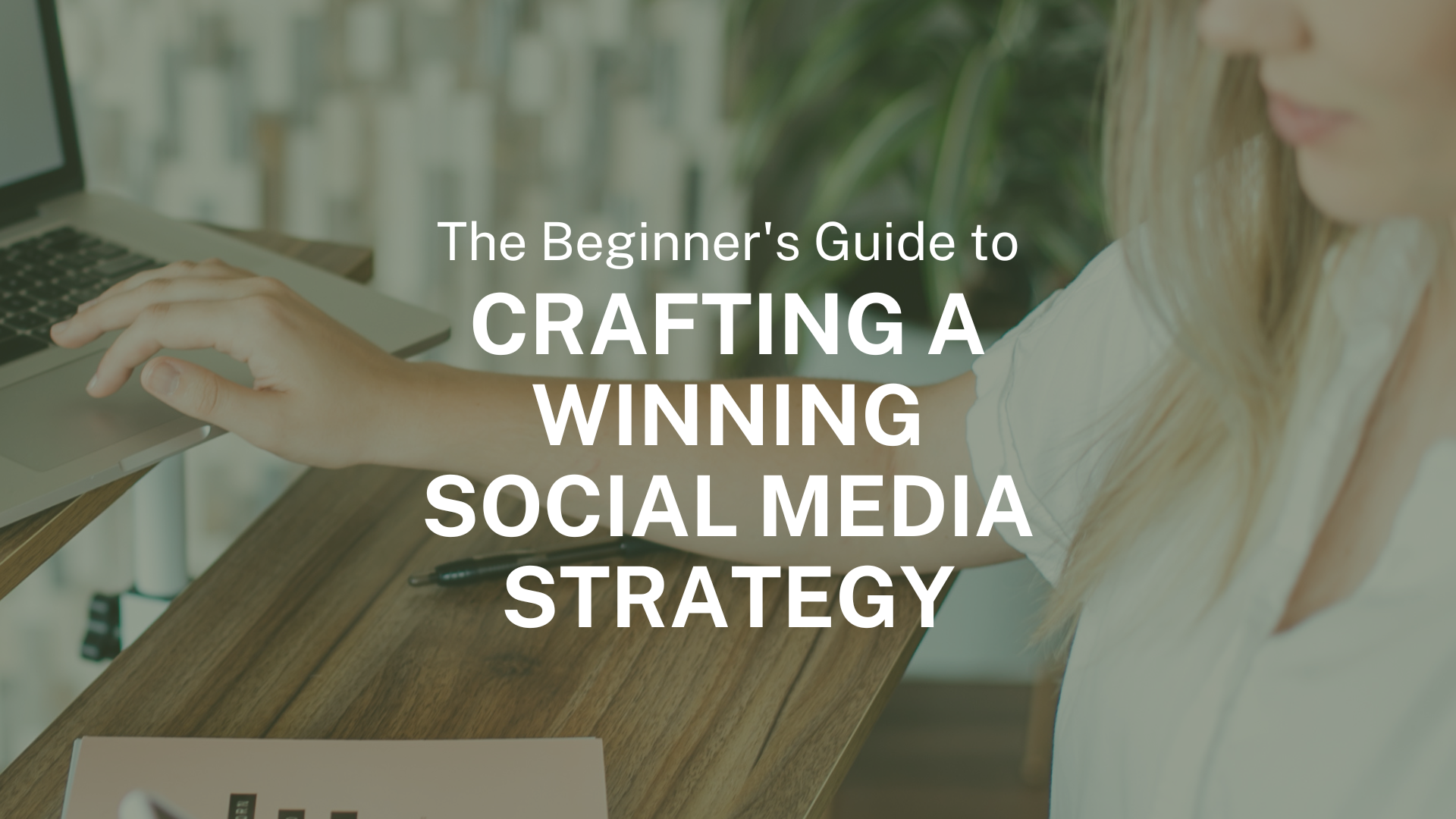Having a robust social media strategy is not just an option, but a necessity, in today’s digital world.
Whether you’re a budding content creator, a small business owner, or simply looking to amplify your online presence, understanding the art of building a social media strategy authentic to YOU is crucial.
Here are 8 things to consider in your process of creating a winning social media plan (aka a beginners guide tailored for people just like you):
1. Understanding Social Media Marketing
Social media marketing goes beyond posting content; it’s about creating meaningful interactions and building a community; it’s a powerful tool to reach new audiences, engage with customers, and drive real business results.
As you begin crafting your social media plan, remember that it’s an extension of your brand’s story and values.
2. Setting Your Social Media Goals
Before diving into the ‘how,’ of a social media strategy, it’s essential to define the ‘why.’
What do you want to achieve with your social media presence? Goals can range from increasing brand awareness, to interacting with your community, to driving website traffic, to boosting sales.
Make sure your goals are specific, measurable, attainable, relevant, and time-bound (SMART).
Some common social media objectives include growing impressions, reach, and followers to support brand awareness; encouraging interactions like shares, comments, and saves; driving website visits by including links and CTAs in your content; and increasing sales by providing easy ways to purchase or book from your social accounts.
3. Knowing Your Audience
Have you ever heard the phrase “know your audience?” That’s because understanding who you’re talking to is key.
Identify your target audience’s demographics, interests, and online behaviors. Tools like audience insights on various social media platforms can provide valuable information to help you tailor your content and approach your community with the right voice and tone.
One easy method for audience research is AI. For example, you can use ChatGPT to research similar brands to your own, key audience demographics, and more.
4. Choosing the Right Platforms
Not all social media platforms are created equal– that is, each has its unique features and audience.
For instance, Instagram is great for visual storytelling, while LinkedIn is ideal for professional networking. Pinterest and YouTube are perfect for boosting SEO on Google and creating content that lives long term, while TikTok and Threads are great for reaching your audience quickly with trending content.
Choose platforms that align best with your brand and where your target audience is most active.
5. Creating Engaging Content
Engaging content would be considered content that drives interactions of a certain type on social media. Likes, comments, saves, shares, replies, profile actions, and follows are all interaction types associated with social media posts.
To determine the kind of content that is engaging:
- Keep a pulse on your social platforms’ average engagement rate. This lets you know how active other accounts’ users are, and can help you set benchmarks for performance.
- It’s not about what you want to say, but what your audience wants to hear. Solve their problems, help them face challenges, speak to their dreams, and help them create a path to success.
6. Building a Content Calendar
A content calendar helps you plan, organize, and publish your content strategically. This not only saves time but also ensures a balanced mix of content types and themes.
Most people have content calendars in platforms like Excel or Sheets, or project management tools like Notion, ClickUp, or Asana.
But building a content calendar isn’t enough. The best content calendar is the one that helps you stay consistent so you can connect with your community regularly.
7. Engaging with Your Audience
Social media is a two-way street. Engage with your audience by responding to comments, asking for feedback, and participating in relevant conversations. This helps build trust and foster a loyal community.
8. Analyzing and Adapting Your Strategy
What gets measured gets managed. Use analytics to track the performance of your content and understand what works best. Be prepared to adapt your strategy based on these insights to optimize your social media presence continually.
Conclusion
Crafting a winning social media strategy might seem daunting at first, but with the right approach and tools, it’s entirely achievable. Start small, stay authentic, and be ready to learn and adapt. The digital world is your oyster, and with a solid social media strategy, you’re well on your way to cracking it open.
Got questions or insights about starting your social media journey? Share them in the comments below!
Want to run a social campaign just like this?
Hey there! I’m Carlisle Russell, a seasoned marketing strategist with more than 10 years of experience in e-commerce marketing. Tap here to learn more about how we can work together to grow your health & wellness brand.




Comments +